On April 21, the Lanting Forum on “Chinese Modernization and the World” was held in Shanghai. The Forum was organized by the China Public Diplomacy Association and the Chinese People’s Institute of Foreign Affairs, co-organized by iGCU, and supported by the Shanghai Municipal People’s Government and the Ministry of Foreign Affairs. Renowned experts, distinguished scholars and influential business representatives worldwide were invited to the Forum, sharing their understandings and perceptions of the concept of the Chinese modernization. It is the fifth time that iGCU participated in co-organizing of the Lanting Forum.

Panel Session C
Panel Session C themed “Closer People-to-People Exchanges for Greater Prosperity of Civilizations”. Ambassador WU Hailong (President of China Public Diplomacy Association) chaired the Panel C. The panelists included Prof. ZHOU Hanmin (Standing Committee Member of CPPCC; President of Shanghai Public Diplomacy Association), Prof. YUAN Ming (Honorary Dean of Yenching Academy of Peking University; iGCU Academic Committee Member), Mr. James Heimowitz (President of China Institute), Mr. Malcolm Clarke (British Director; Two-time Oscar Winner), Mr. YAO Ming
(President of the Chinese Basketball Association), and Prof. Yoro Diallo (Professor and Researcher at the Institute of African Studies of Zhejiang Normal University). Prof. Graham Allison (Professor at Harvard University; Invited Expert of iGCU) and Prof. Kishore Mahbubani (Distinguished Fellow of the Institute of Asian Studies at the National University of Singapore; Invited Expert of iGCU) delivered their speech virtually in the session C.
The panelists underscored the significance of promoting people-to-people exchanges, noting that it is important to view different civilizations with an open mind, and to settle disagreements by seeking common ground while shelving differences.
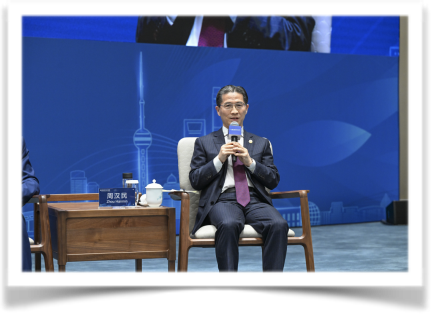
Prof. ZHOU Hanmin’s (Standing Committee Member of CPPCC; President of Shanghai Public Diplomacy Association) speech highlighted five major characteristics of Chinese modernization were talked about, which respectively are: people-oriented, technologically innovative, culturally pluralism, win-win cooperation, and forward-looking. Prof. Zhou suggested that it is as a matter of fact that many people are quite worried about the future. Prof. Zhou suggested that although having a certain degree of fear towards the future (as long as they are realistic) is essential, it is also important to hold firm confidence, believing that our future will be bright.
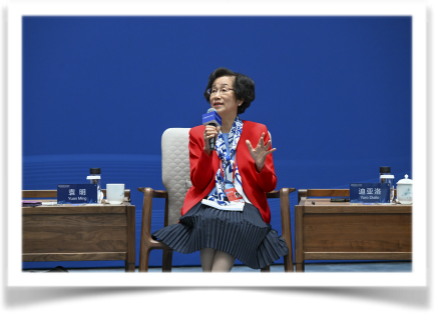
Prof. YUAN Ming (Honorary Dean of Yenching Academy of PKU; iGCU Academic Committee Member) commended the Chinese youth for their outstanding performances in facilitating people-to-people exchanges between China and the world. She reckons that the Chinese “Gen-Z” youngsters are generally less influenced by ideological frameworks,
more confident and open-minded, and tolerant toward new things. Mentioning the Seventh Yenching Global Symposium held in Hainan on April 15, Prof. Yuan indicated that the Chinese youth are deeply concerned about global issues and have been playing significant roles in trying to contribute to the solution of global challenges. Quoting Prof. Yuan, “We (the older generation) hope that we could work with our younger generation to build a better and brighter future together.”

In his remark, Mr. Malcolm Clarke (British Director; Two-time Oscar Winner) advised the Chinese authorities to effectively use of its media, journalism and film-making. Mr. Clarke suggested that instead of emphasizing the Chinese achievements in technocratic, technological statistical terms, the time is ripe to shift from propaganda to soft power, enabling China to tell human stories about the “extraordinary sacrifice and work and suffering that went into this Chinese miracle.”
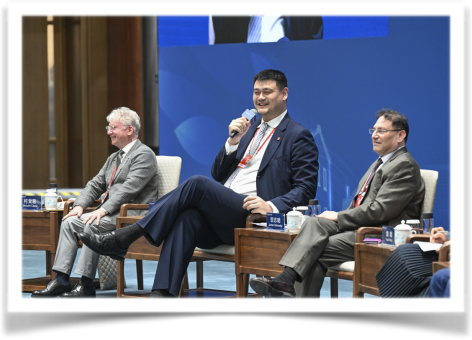
Mr. YAO Ming (President of the Chinese Basketball Association) shared his experiences as a sportsman and how sports can be used to unite nations. Mr. Yao quoted Mr. Nelson Mandela’s words that sports is a uniting activity that can serve as a bridge to connect the world. “Sports has the power to change the world doesn’t only apply to winning but adopting rules and providing a leveled ground that favors everyone,” said Mr. Yao. He reckons that basketball, as one of the most beloved sport in both China and the U.S., would play a more prominent role in facilitating international people-to-people exchanges, and contribute to the harmonious development of the world.
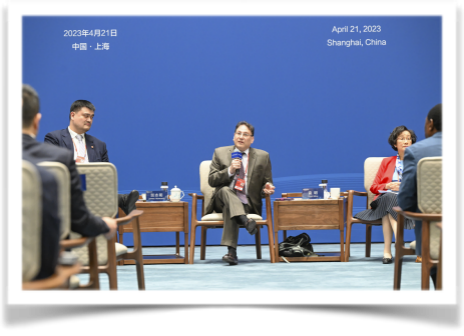
Mr. James Heimowitz (President of China Institute) first noted in his speech that China Institute has been dedicated to promoting cultural exchanges between China and the U.S. since its founding in 1926. He further stressed that despite many challenges and struggles, building the bonds and connections between the Chinese and American people remains important, and both sides should always keep their doors open to each other. Quoting Mr. Heimowitz, “China will always be very important to our future. Anyone who cares about China-U.S. relations should make an effort to make everyone feel more comfortable.”
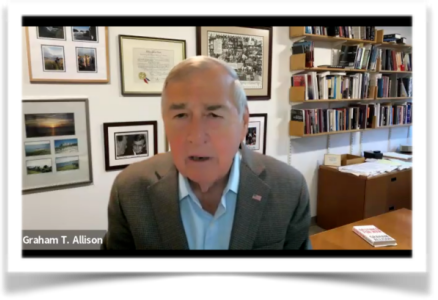
In the speech of Prof. Graham Allison (Professor at Harvard University; Invited Expert of iGCU), he suggested that China and the U.S. are “in a classic Thucydides rivalry”, adding that China and the U.S. have been locked in a relationship that requires both “fierce competition” and “intense cooperation”. Professor Allison advocated China and the U.S. to find a way to learn and adapt to each other, and seek effective ways to de-escalate the current tensions.
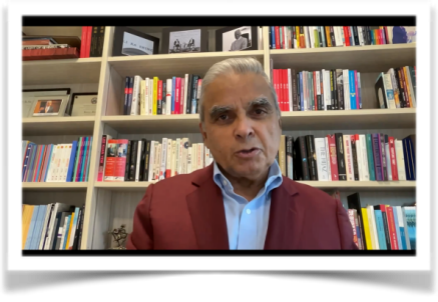
Prof. Kishore Mahbubani (Distinguished Fellow of the Institute of Asian Studies at the National University of Singapore; Invited Expert of iGCU) referred to the cooperative relationship between China and the ASEAN, suggesting that such multilateral cooperation is what the world needs today.
